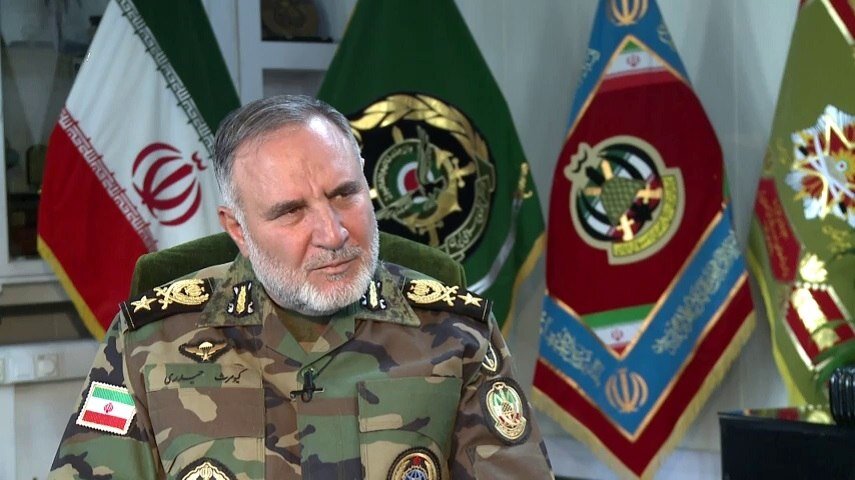TEHRAN – Brigadier General Kiumars Haidari, commander of the Iranian Army (Artes) ground forces, has revealed the existence of a classified domestically developed weapons system equipped with artificial intelligence (AI), claiming that the military preparations of the Islamic Republic “does not survive” the enemy in the event of a conflict.
In an interview with Iranian national television broadcast on Saturday, Haidari confirmed that the ground forces “have very advanced weapons, some of which are secrets or even super secrets, including an AI integrated system designed to enhance Iran’s defensive and offensive capabilities.”
These are extremely sophisticated systems that utilize artificial intelligence. Although they are still classified as traditional weapons, their abilities are exceptional,” he said, highlighting the importance of operational secrets.
Avoiding technical details, he further highlighted Iran’s independence by revealing that the classified secret weapons, fully developed by domestic experts, are essential to military infrastructure, a point highlighted in recent drills using Iranian equipment.
Analysts suggest that such systems could include AI-enhanced drones, smart apartment buildings and networked battlefield management tools. The technology that Iran is exhibiting at a recent exhibition.
Haidari also said “our eyes are wide open and our hands are triggered,” hinting at escalating regional tensions and conflicted Western stances, adding that Iran “has no chance for enemy forces to survive” in the event of a conflict.
The Iranian commander’s remarks come shortly after President Masuud Pezeschkian’s recent military praise for his day-to-day national forces on Friday for his achievement of “strength and preparation” and “subsistence” in military production.
At the event, Pezeschkian said, “Society security and peace are only possible through the presence of a strong and prepared military, highlighting the role of the Army in ensuring national and regional security. Without this powerful force, security would have disappeared from our society.”
He also added that “Iranian military has played a pivotal role in defending the state and defending sovereignty over hostile forces,” praised the “brave” army, adding that “Iranian military has played a pivotal role.”
Postwar transformation and border warning
Elsewhere in his interview, the commander traced the modernization of ground forces to lessons from the war imposed by Baasist Iraq in the 1980s against Iran, known as the “Sacred Defence Era.”
Since then, Haidari said he has shifted from traditional structures to “modern, dynamic, and extremely mobile” entities that allow for “quick intervention” and “full attack capabilities.”
Currently, 10 infantry divisions are stationed along the Iranian border, with “advanced global technology” for surveillance and “comprehensive situational awareness.”
“This deployment is not about eliminating existing threats, but about establishing permanent security and preventative presence,” Haidari highlighted a future-looking strategy to combat cross-border crime, terrorism and espionage.
In recent large-scale exercises in the eastern, western and coastal regions, we tested domestically produced equipment, including precision weapons and network command systems.
“Our military forces have fully prepared and carried out these trainings,” he says, framing Iran’s military industrial autonomy as a response to decades of international sanctions.
Cyber defense and IRGC coordination
Haidari has identified a specialized cyber defense unit that operates at the “highest level of technological refinement” in recognition of the “wide range of cyberspace impacts” on modern warfare.
These teams have achieved “critical breakthroughs” in ensuring military infrastructure against attacks, he said.
He also reaffirmed the seamless coordination between the Army and the Islamic Revolutionary Guard (IRGC), saying that both act as “uniform forces” under the leadership of the Islamic Revolution, Ayatollah seyed Ali Khamenei’s strategic leadership.
“Our missions may be different, but we will strengthen each other across land, sea and air,” he confirmed.

